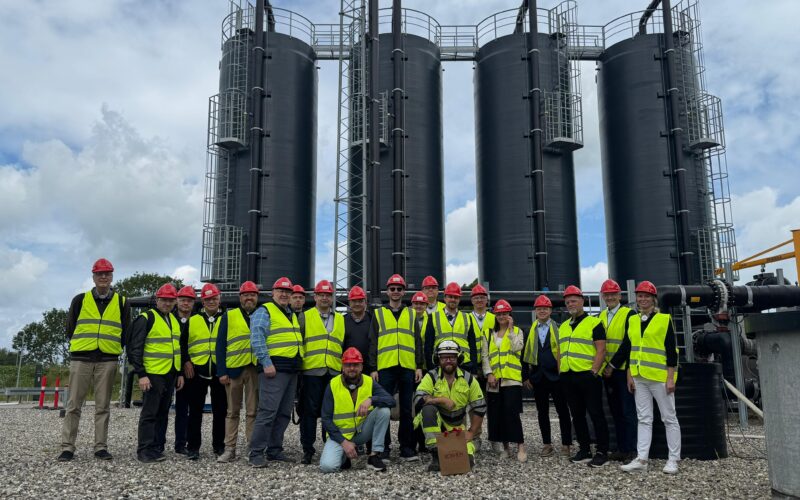Analytics of the Razumkov Center on sustainable development of RES in Ukraine
The Razumkov Center has developed a set of solutions to ensure sustainable development of alternative energy in Ukraine, as well as fulfillment of all financial obligations of the state under current legislation to investors in the RES sector based on finding the optimal compromise between them and the Government.
The analytical study “Complex of solutions for sustainable development of RES in Ukraine”(in Ukrainian).
What do we have now?
Due to legislative incentives through the establishment of “green” tariffs during 2010-2019, the share of RES in gross final energy consumption increased 2.4 times – from 2.9% to 7%. In particular in the sectors: in the electricity sector from 6.5% to 8.9% (including large hydropower plants); in heating systems – from 2.4% to 8%; in transport – from 1.1% to 2.2%.
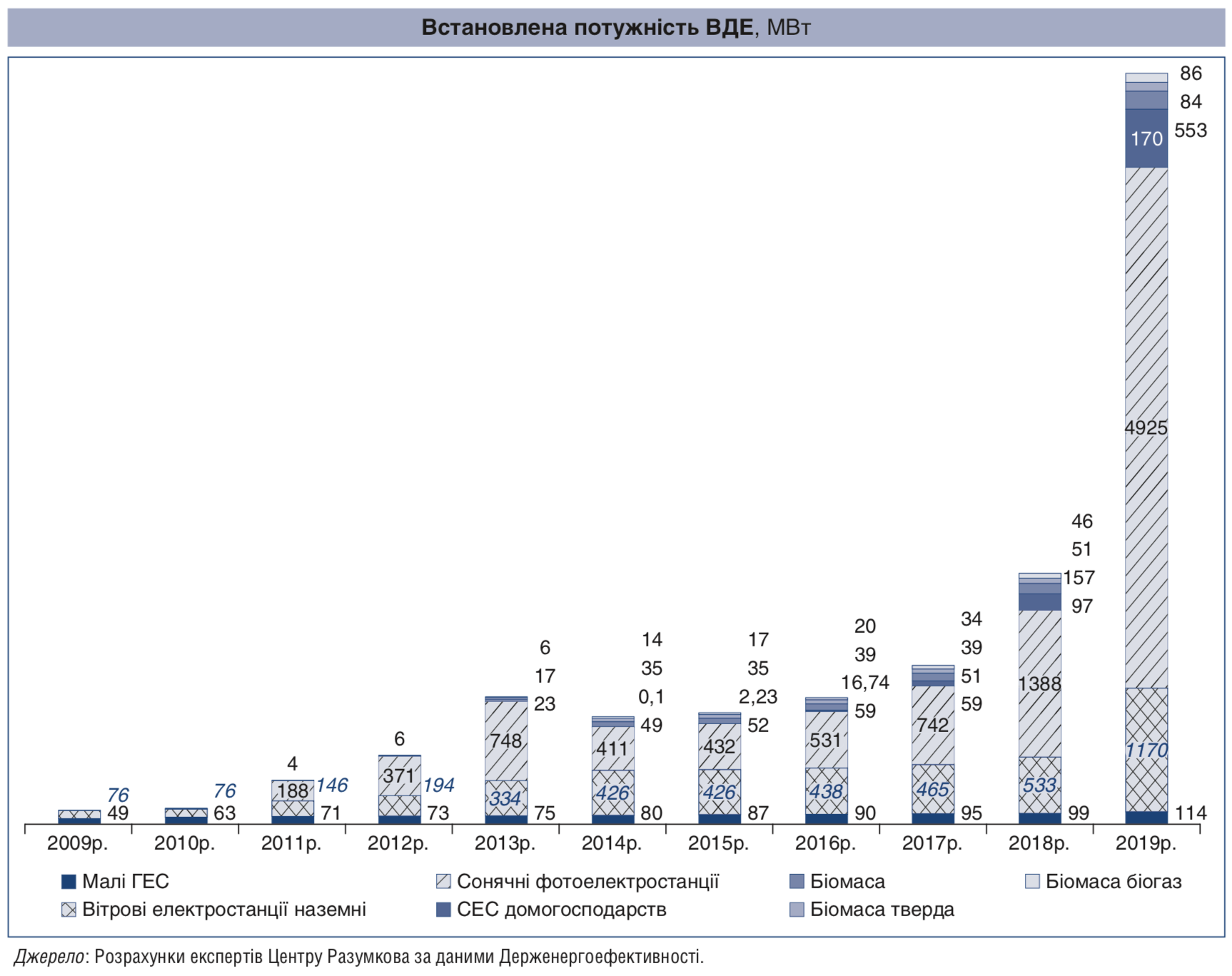
We have surpassing targets of the National Plan by 25%, but this figure was achieved only by exceeding the limits of the installed capacity of solar power plants MORE THAN 2 TIMES.
The indicators of the National Plan for the installed capacity of wind and biogas plants – by 48% and 79%, respectively, have not been met.
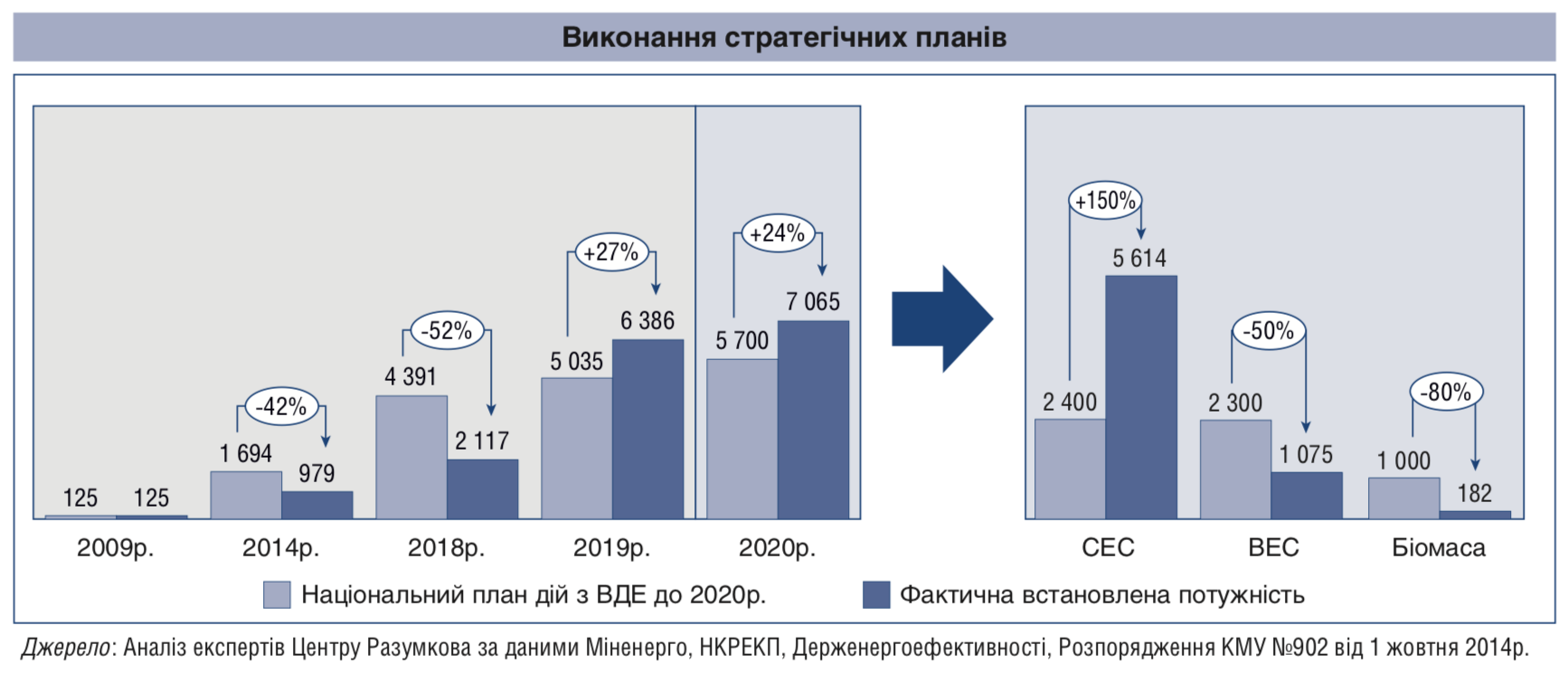
Energy sector investments
The total investment of international companies reaches € 2.5 billion – this is one of the best examples of successful foreign investment in the national economy since Ukraine’s independence.
As a result, Ukraine ranked 8th in the ranking of investment attractiveness in this sector, compared to 63 position in 2018.
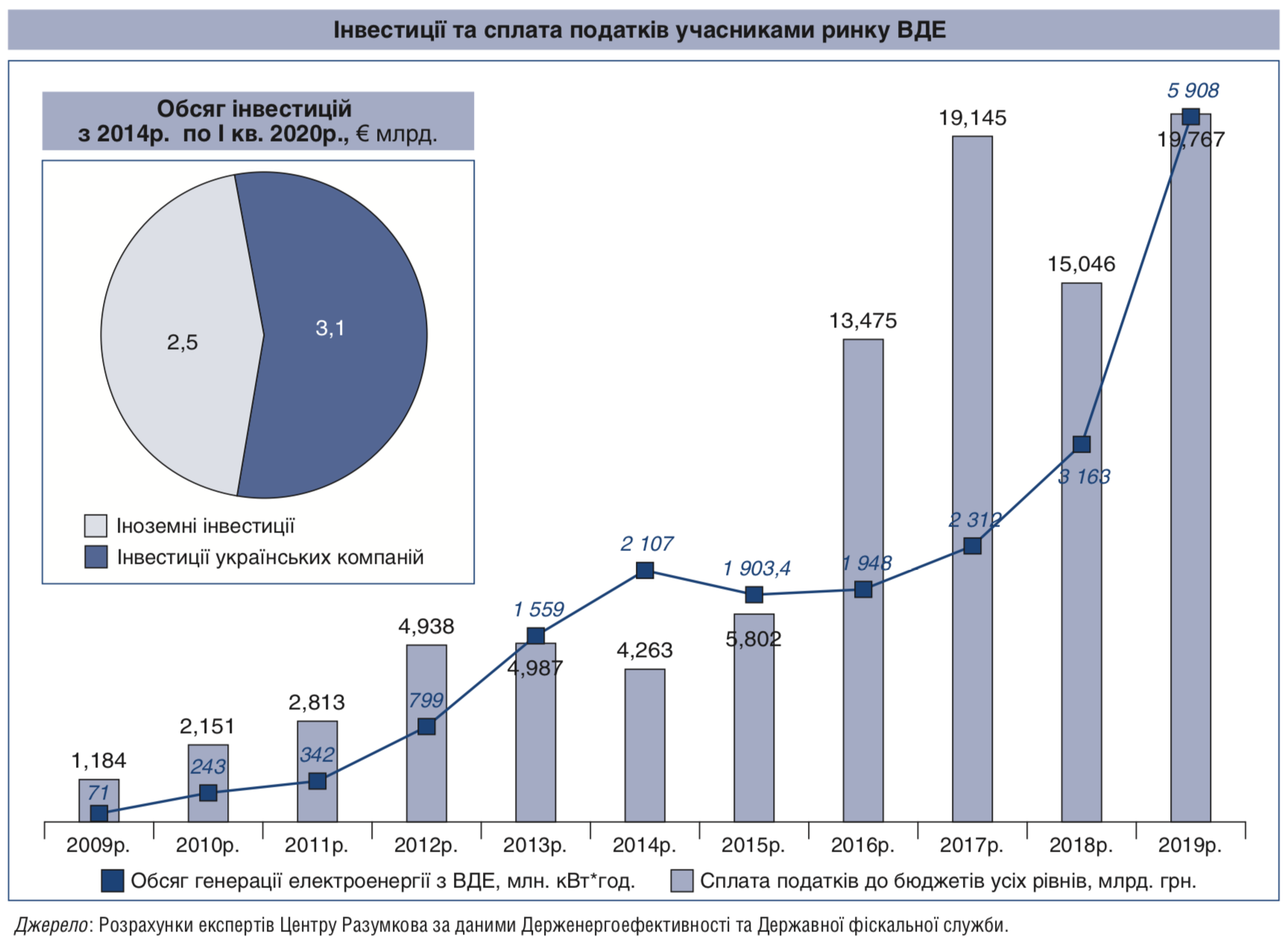
Payment of taxes
According to the results of 2019, the participants of the alternative energy market paid UAH 19.8 billion to the budgets of all levels, which is THREE TIMES MORE THAN THE PAYMENT OF TAXES BY THE COAL SECTOR.
During the period 2009-2019, operators of RES installations paid UAH 93.6 billion to the state budget.
It should be noted that due to the payment of land tax by the subjects of the alternative energy market revenues to the budgets of all levels will grow steadily.
In the RES sector, the following remain unresolved:
- the process of restructuring the “green” tariff,
- conducting “green” auctions,
- a deficit of funds of SE “Guaranteed Buyer”.
What are the challenges today?
The current state of the market prevents the stable operation of the energy system and hinders the implementation of the Energy Strategy of Ukraine until 2035 in terms of the transformational transition from the use of fossil fuels to clean energy.
The economic challenges are caused by the lack of a transparent and competitive market mechanism for the distribution of funds between electricity market participants. Also, there is not enough support of the state for the development of alternative energy. The problem arose due to constant political and administrative interference in regulatory legislation.
Technological challenges are especially exacerbated by the surplus of generation, the low level of alternative generation forecasting, the lack of responsibility of RES producers for imbalances.
The current model of cash flow in the national electricity market leads to a rapid loss of financial liquidity, non-fulfillment of obligations to investors in the alternative energy market, bankruptcy of industry enterprises. In other words, it has become absolutely obvious that without a significant changes of the current market model – even if agreements are reached to reduce the “green” tariff – the development of RES will be impossible due to growing debts.
In the new wholesale electricity market remains a problem of laying special responsibilities for compensation of electricity prices for households on state companies (PSO mechanism). At present, this mechanism provides tariffs for households that are twice lower than the level of reimbursement (to provide the population with electricity).
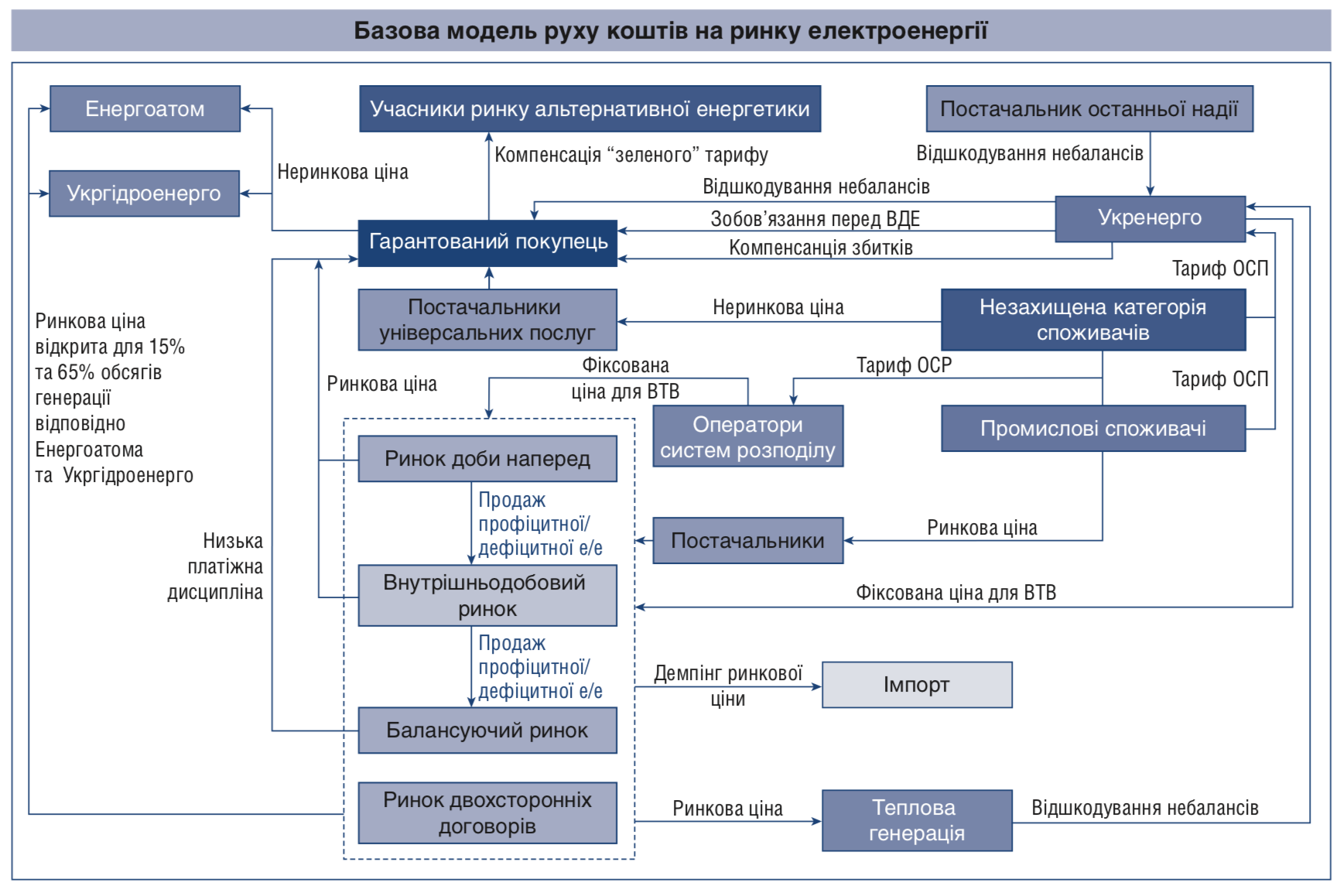
Proposals of the Razumkov Center
- The government must continue to take steps to address green energy issues and fully meet its commitment to investors.
- To stabilize the RES sector, it is necessary to amend a number of legislative acts in agreement with the Secretariat of the European Community, providing for the transition to the PSO financial model and its gradual abolition.
- The issue of payments of “green” generation should be resolved through the State Enterprise “Guaranteed Buyer” in accordance with the Law on the Electricity Market.
- According to the plan of the Secretariat of the Energy Community, there should be a transition to market prices: by June 30, 2022, fixed prices should reach the price level of the Universal Service Provider, which is currently applied only to non-household consumers.
- To stabilize the RES sector, it is necessary to restrict the commissioning of new solar facilities at a “green” tariff, increase the tariff of the transmission system operator, bring market prices to an economically reasonable level.
- To ensure the reliability of the power system, it is necessary to introduce liability for imbalances and provide at least 2 GW of high-shunting and about 2 GW of storage capacities.

